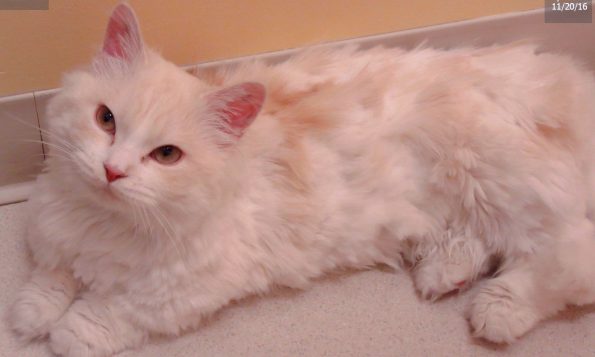
Neru is a 1 year old, male munchkin cat. He is very loving and loves playing.
During his exam, the veterinarian noticed that Neru only had one testicle. It is extremely rare to be born completely without a testicle. What normally happens is the “missing” testicle is retained in the abdomen or the groin region.
During fetal development the testicles start out in the abdomen and slowly make their way to the inguinal ring. When puppies and kittens are born, their testicles should be at the inguinal ring and will descend into the scrotum shortly after birth.
When this progress does not happen correctly then one or both testicles can stay in the abdomen or just outside of the inguinal ring (where the groin is). The name for this is Cryptorchidism.
Testicles in the abdomen or groin need to be surgically removed. This is the only treatment for cryptorchidism. They are at a much higher incidence of developing testicular cancer. This is because these locations are at higher temperatures than the testicles would normally be at. The retained testicle is smaller (sometimes only a few millimeters in size) than the normal testicle. This can make it difficult to locate the cryptorchid testicle during surgery. The veterinarian may recommend doing an abdominal ultrasound prior to surgery. This would increase the chances of finding retained testicle and decrease surgical time.
Neru’s abdomen was opened up and the spermatic cords were located and followed into the inguinal canal. An additional incision was made in his inguinal region and the testicle found and removed. Neru’s surgery was a success and he made a complete recovery.
It is important that your puppy or kitten be examined by a veterinarian. Cryptorchidism is one of the many congenital abnormalities that your veterinarian looks for during the puppy or kitten exam. Cryptorchidism is genetic, so these animals should never be used for breeding as they can pass this on to their offspring.

 6512 12th Ave NE
6512 12th Ave NE




